Politics and Privilege in The Legend of Korra
I didn’t see The Legend of Korra coming.
I loved its prequel series Avatar: The Last Airbender for its wonderfully realized world and charming cast of characters. The show bravely depicted themes of genocide, imperialism, and identity through the lens of a fantasy monomyth, heavy stuff for a kids show. The sequel, The Legend of Korra, was wholly unexpected and incredibly extroverted with its bold sociopolitical commentary. By reframing the central power of bending, The Legend of Korra delves into contemporary themes like the luck-based distribution of advantages and socioeconomic justice.
In the Avatar universe, certain people are blessed with magical powers allowing them to manipulate the classical elements with the martial art of “bending”. A spirit known as the “Avatar”, with the ability to bend all four elements, is cyclically reincarnated in human form and acts the planet’s peacekeeper and delegation to the Spirit World. After the events of Avatar: The Last Airbender, Avatar Aang establishes Republic City, with the utopian vision of creating a place where all can live in harmony.
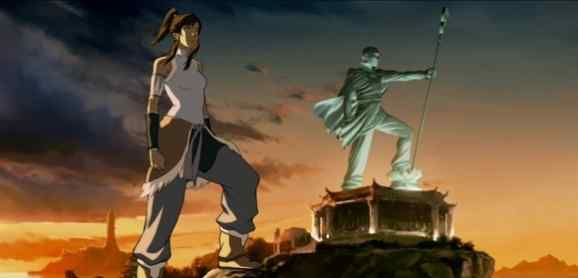
But Aang’s dream dissipated after he died. When his successor Korra arrives at Republic City, she discovers a world changing. Rapid technological growth has displaced the spirituality of bending; what was once a renowned martial art is now commonplace, and benders use their powers to fight or cause crime, compete in arena sports, and fulfill their everyday jobs. These supernatural powers create social divides, and a movement called “The Equalists”, seeks revolution against the City Council, comprised exclusively of benders. This pretense of societal unrest fuels The Legend of Korra’s first season, as Korra challenges the Equalist leader Amon while dealing with the internal conflict of living up to the monumental expectations both sides place on her.
Bending, Privilege, and the Exercise of Power
When Korra arrives in Republic City, she encounters an Equalist agitator decrying bending as an inherently unfair and oppressive art. Korra feels impugned, defending bending as “the coolest thing in the world” before storming off.
In Republic City, bending grants greater social power than nonbenders. Many of Republic City’s more respected jobs are reserved for benders exclusively: metalbenders make up the police force, firebenders direct lightning to generate electricity, the city’s primary form of entertainment is Pro-Bending, and the City Council is now comprised exclusively of benders. On the other side of the law, bender gangs like the Triple Threat Triad use their powers to extort protection money from nonbending shopkeepers. Nonbenders are systemically disadvantaged in Republic City’s social structure and must work substantially harder in order to succeed, as in the case of Hiroshi Sato’s Future Industries. Furthermore, due to the lack of nonbender representation on the City Council, nonbenders are disempowered and have no say in public decisions at all. Simply put, one’s difficulty of life in Republic City comes down to a matter of luck.
Despite well-intentioned ideals of promoting peace and unity, Republic City’s economy renders benders and non-benders as non-equals. Simply by possessing supernatural powers, benders achieve greater social mobility and cultural identity. Amon has the devastating ability to permanently take away a person’s bending powers, thereby nullifying both their personal identity and their societal power, an interesting reversal considering that Aang used the same power to defeat Firelord Ozai and end the Hundred Years War. Amon thus becomes the figurehead of the Equalist movement, hoping to equalize society by eliminating these unfairly distributed privileges from the world.
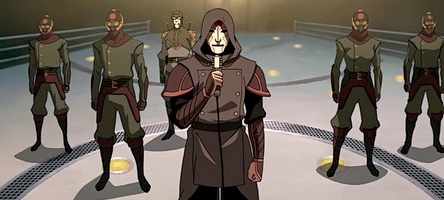
Privilege, that’s a loaded word. Theoretical rhetoric aside, privilege is defined by Webster as a “special right, advantage, or immunity granted or available only to a particular person or group of people”. Bending fits this definition perfectly: bending is a special power granted by birth only to certain people, giving them a substantial advantage in society. Real world parallels can be found throughout history, the first to come to mind is gender, historically, western civilization has granted greater social privileges to men. Cultural texts provide a substantial level of discourse on the topic of patriarchy and privilege, making this a dialogue that I don’t think I can meaningfully contribute to here.
The most accessible analogy coming out of bending in The Legend of Korra comes from the real world “Digital Divide”. Contemporary culture is computer-centric, practically all white-collar, government, or military jobs demand computer use of some sort, and the creation and distribution of information now happens through the Internet. Science and engineering are among the fastest-growing and highest-paying fields, and college students who have had computer access from a young age and programming classes in high school are put at a substantial advantage over those who did not. In such a digitally centric world, lack of technological access severely limits socioeconomic mobility, and the less privileged may find themselves unable to compete with their better-off peers. While this disparity in advantage may not be unfair per se, and myriad programs exist to cross the Digital Divide, growing up without technology leaves individuals in a difficult position. The analogy to the knapsack of perks that bending affords in Korra’s universe is obvious, as both bending and access to technology grant social mobility and influence.
However, unlike technological availability, bending is a privilege that people are born into. Bending is a God-given privilege that immediately sets the bender apart and provides her with the pertinent abilities and gifts. Like ethnicity, gender, or background, factors which one has no control over, bending is an integral part of one’s identity and strongly influences one’s life experience. Empathy between benders and non-benders becomes difficult simply because of the sheer disparity between the life experiences of the two groups. It is difficult for a bender to comprehend life without bending in the same way it is difficult for people raised in, say, East Asian cultures to comprehend the cultural ideologies of contemporary America. Disparity in background and perspective creates misunderstanding and discrimination.
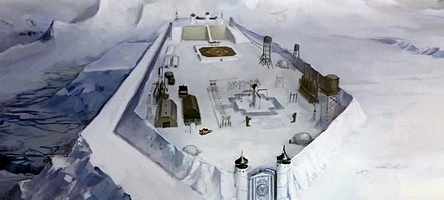
Unlike many Campbellian heroes, Korra comes from a background of privilege. Being the Avatar, she has lived a sheltered existence in the White Lotus Compound. Immersed only in bending culture and living amongst masters of the art, bending informs her entire perspective and worldview, inspiring her admiration of Republic City’s Pro-Bending League and her disdain towards the Equalists. Having been raised in a community comprised entirely of benders, she does not quite understand how non-benders could feel oppressed by benders, believing that benders are doing non-benders a favor by playing out their societal roles. This changes when the Council resorts to a McCarthy-esque witch-hunt to fight the Equalists, instating a strict curfew applying only to non-benders. When an arrested civilian exclaims, “You’re our Avatar too!” Korra realizes that in order to fulfill her purpose as the world’s peacekeeper, she must step outside of the comforting confines of the culture she was raised in, recognize her privileged upbringing, and empathize with people whose life experiences radically differ from her own: a message very pertinent to the show’s audience of young adults entering college for the first time.
Distributive Justice and Bending
Throughout most of Korra’s first season, non-benders are treated with sympathy. Benders are depicted exercising power unfairly over non-benders, as in the case of Tarrlok’s task force ambushing a group of chi-blockers in training. Even Korra isn’t entirely sympathetic to non-benders; she outright threatens an Equalist agitator before tossing him aside in Episode 3. Acknowledging that the Equalists provide non-benders their only means of self-defense against bending aggressors with electrified gloves and chi-blocking classes, Amon becomes a charismatic extremist. However, Amon’s means of achieving equality involves removing inborn privileges from benders, putting him in an unjustly egalitarian position.
The central conflict in The Legend of Korra is one of distributive justice- the branch of ethics that deals with the allocation of goods in society, of which political philosopher John Rawls is most influential. In A Theory of Justice, Rawls argues that the distribution of wealth, privilege, and talents amongst individuals in society is morally arbitrary, the result of a “social and natural lottery”. Luck is a faulty entitlement to greater life prospects than others because fortunate individuals did nothing to merit their greater privileges. Rawl’s position that “each person is to have an equal right to the most extensive scheme of equal basic liberties compatible with a similar scheme of liberties for others” would seem to support Amon’s radical egalitarianism. Given that bending grants privileges such as governmental representation and greater job prospects, its presence in the world would disrupt that right to basic liberties under Rawl’s principle of “Fair Equality of Opportunity”, where positions of privilege must remain open to all.
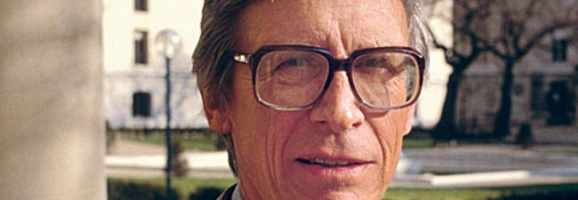
The second of Rawl’s principles would actually support the inequalities between benders and non-benders. Critical to Rawl’s theories of equality is the “difference principle”, which posits that certain inequalities are acceptable in society insomuch as those inequalities come to the benefit of all society. Bill Gates’ great socioeconomic power is acceptable because his work creates the societal benefit of making computers cheaply accessible to everyone. To this extent, benders may keep their privileges as their work generates electricity for the city and keeps the streets safe from bender gangs, both services that benefit non-benders. Under this application of the difference principle, benders act as benefactors to non-benders as their actions benefit the less privileged members of society, lending credence to the City Council. At the same time, this sense of bender-paternalism is problematic as it disempowers and disenfranchises non-benders, almost becoming reminiscent of “The White Man’s Burden”.
One issue I take with some of the contemporary dialogue around privilege is with the language that it implements. Blanket statements paint a diametric opposition between the privileged and the non-privileged, assuming that the privileged are maliciously and intentionally oppressing the non-privileged. This sense of miscommunication and assumption of bad faith becomes central to The Legend of Korra, as Korra must transcend her own limited upbringing to appease people unlike herself. The problem with privilege is that the privileged are don’t know that they are privileged, and disparity between life experiences causes that divisive rhetoric. What makes The Legend of Korra so interesting is that it addresses that disparity as part of its coming-of-age tale, which has us excited for season 2.
What do you think? Leave a comment.
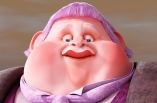


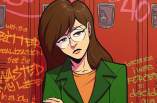
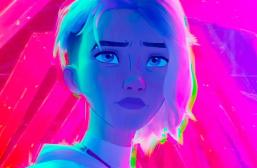
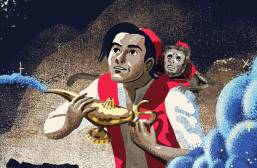

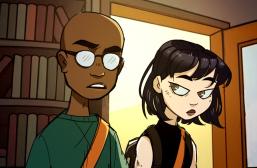


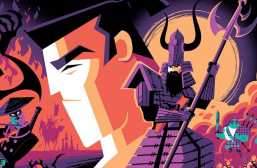
I loved avatar the last air bender, and some of my favorite memories are of watching it with my cousin during a season one marathon. So, obviously I was extremely excited when I heard of this show coming out.
At first I was a little skeptical, the action was good and the music great but the humor wasn’t quite there. Yet after it warmed up a bit the show started being really funny and I was laughing my butt off, in between nearly shouting at the awesome action scenes. Can’t wait for the next season.
I like this cartoon, but, based on the somewhat inelegant attempts to market the show to both the core demographic of small children *and* a lesser, yet devoted, cult of adult viewers—who were no doubt fans of The Last Airbender—I cannot yet call it *great*. There would need to be more character development. I will continue to follow the show and hope for better writing.
Smokes’ great writing here!
I always seem to have a problem with the way superpowers are used in movies and series. Legend of Korra is no different, unfortunately. It is just that I can think of so many smarter ways to do things, considering the abilities the characters possess, and it gets annoying when the character does nothing like it, and further complicates the situation he or her is in. Korra is still a young apprentice, but considering that she has lived with these powers her entire life, she should know what she is capable of. This goes for most movies and TV series that involves powers. The Legend of Korra is not as bad as many others, but it is still something that needs work.
Having said that, it is a great series. I’m not a big fan of anime (or this is more like American Anime is such term exist), I find it repetitive and constant, where I prefer that there is actual progress in each episode. In this series, the main objective is always clear, and it is not repeated in similar ways throughout the series (this goes for many series other than anime).
Anyway, thanks for the writing!
yeah, the pacing in Korra is great, and its a wonderful bildungsroman for older teenagers. That said, my focus with this article was more on Korra’s world than her affect on it as a whole. Republic City was a fascinating setting and its 1920’s Steampunk theme brought its themes of inequality and power much closer to home than Avatar’s monomythic imperialism.
Very well written analysis of the broad movements of Korra. Another interesting theme that I took from the series toyed with the idea of balance. At what point (and in what ways) do the oppressed become the oppressor? How do you establish any form of social justice without it then becoming a form of social oppression/marginalization? Finally, how do we balance the need for ongoing scrutiny and instability, with the need for order/stability? Again, interesting essay.
Wow, great article. In terms of social justice, I think the show did not go far enough. The entire question of whether or not benders were taking advantage of their powers to “oppress” nonbenders needed a lot more open debate. Korra advanced from scoffing at the idea initially, to beginning to see that there might be some validity to the argument. However at that point, when Amon began using such unjust methods to pursue his goal, it threw his entire argument into question, and afterwards there was little further exploration of the topic from a societal aspect, and his real motivations turned out to be far more personal in nature. I would love to see Season 2 continue to showcase the difficulties nonbenders (other than rich heiresses) have in a pro-bending society.
Another part of this article I found interesting was:
“Unlike many Campbellian heroes, Korra comes from a background of privilege. Being the Avatar, she has lived a sheltered existence in the White Lotus Compound…Korra realizes that in order to fulfill her purpose as the world’s peacekeeper, she must step outside of the comforting confines of the culture she was raised in, recognize her privileged upbringing, and empathize with people whose life experiences radically differ from her own”
This reminded me of the path of the Buddha, raised as a sheltered prince, and his first exposure to the suffering of mankind. I don’t see a ton of other Buddhist elements so far in LoK, though, so I’m curious what will happen when Korra visits the Spirit Realm in Season 2.
well said, I think that the revelation that Amon was really a bloodbender manipulating anti-bender sentiment kinda puts the entire equalist cause in a bit of a negative light. Though it does mean a lot considering how similar negativity and hysteria has been manipulated to radical ends in real life.
And great point about Korra’s similarity to Buddha’s story. Definitely interesting given the “sheltered existence” and “loss of innocence” thing. Given next season’s focus on the Spirit Realm, I hope to see the kind of interesting surreal imagery we saw when Aang visited the place for the first time at the North Pole in Season 1.
Someone discussed this at a different board that I agree with completely, so I’ll bring the discussion here to this lovely article… The lack of writers is very disappointing with this show. The showrunners are talented but writers such as Aaron Ehasz were integral to the writing of ATLA and him, along with others, were responsible for much of the show’s best developments and episodes.
I love this analysis of Korra and love how the writers and creators of the show have tackled the heavy issues you mention in your article. Although I couldn’t really get into Korra, I do think I’ll start watching again when I have some more time. I thought that The Last Airbender was so well done that nothing could top it but I have heard many good things about Korra.
The thing that frustrates me about Legend of Korra is this: all of this discussion and analysis about social justice, privilege, power imbalances, and so on is incredibly fascinating… and absolutely none of it comes from the show itself. The show sets up this wonderfully morally complex situation and then stubbornly refuses to explore it beyond the most cursory and superficial of glances.
The show is absolutely drowning in moral certainty. Never once does it call the morality of Korra’s actions into question. Any time Korra abuses her power it’s somehow necessary to the plot, and so the narrative always gives her a free ride. Never once is there a character that raises a concern about the balance of power between benders and non-benders that isn’t immediately painted as a violent extremist (or in the case of megaphone guy, an obnoxious blowhard).
And in the end, it all has nothing to do with the divide between benders and non-benders, and everything to do with a pair of bender brothers with Daddy Issues. This whole social justice thing was just the cover for our big tweest at the very end of the show, as evidenced by the fact that Amon’s being revealed as a bender kills off the Equalist movement. None of this fascinating, morally difficult stuff really mattered to the show, and that’s what leaves me fuming.
Part of why the main market would be children.
The political commentary i many modern cartoons/animes is astounding. Love the article- very detailed!
I like your analysis of the themes in Legend of Korra. It’s a pity that Amon was only a villain in season one. As much as I was intrigued and liked the season 2 arc, I feel that the question of privilege is something that could have spanned multiple seasons, much like the themes and story of the first ATLA series, if only the production team had been granted the ability to do so.
I love this article so much. The details of a game or show’s society that are revealed through small pieces of information are fascinating. Many people think that designing a world is easy, but true world designers know it is not. The ability to create such a rich society and then reveal it not through a long narrative but through little hints and pieces of information is an art form in and of itself.
I think the world of Legend of Korra is quite fascinating. The problem is the show’s refusal to explore the world beyond a surface glance. I was discussing the show with a friend of mine over email and we had these long rants. I pointed out that there is an obvious divide between the benders and non-benders. I mean I haven’t watched the series since last year but I am almost positive that there were no non-benders on the council that ran the city. That means the non-benders have no representation. This is serious stuff. Tenzin doesn’t count because he is a bender. I grew very frustrated by the show near the end. It’s so easy to make the face of the movement this narcissistic terrorist, thereby sweeping the real problems under a rug.
This article offers such great insights into the much under appreciated continuation of the Avatar universe. What is so wonderful about these concepts is that “Avatar: The Last Airbender” makes us fall in love with bending, fans will often talk about what kind of bender they would be. However, “Legend of Korra” explore the full societal implications that result from such a hierarchal sense of human ability. Adding season 2 into the mix of this discussion, the all bending council is dismantled replaced by a non-bending elected official. This points in the direction of ever changing progress that even an Avatar can be wrong, which is also further explored within all of season 2.
I know this is a fairly old article, but I read the whole thing and just wanted to express my admiration for how well-written and thought-provoking it is. The themes represented in the first season of LoK are pretty easy to catch, of course, but having them presented in this format and tied directly to philosophies we here bandied about in our day-to-day lives really ties it all together.
As we now know, the second season didn’t quite continue along this same track, focusing instead on the more spiritual side of things as we were somewhat accustomed to from watching Aang’s adventures. I didn’t enjoy it any less, though! Anyway, great article ^_^ .
I greatly enjoyed the first season of Legend of Korra, and I believe part of that was due to its political and socioeconomic themes. I do find it very interesting that they chose this take on certain people’s abilities to bend the elements. It is a very good allegory for the seemingly luck-based circumstances under which some people find themselves in our day and age. Some are born into wealth, and others into poverty, often neither deserving of their fate. But I liked that the Legend of Korra did not seem to pick a side, but rather faced the facts and simply surmounted that it’s not the circumstance into which you are born, but rather the choices you make. It reminds me of the scene in “The Fellowship of the Ring” where Gandalf tells Frodo “All we have to decide is what to do with the time that is given us.”
This was a great article. Really enjoyed it. I have only just started to watch Korra, and I am finding it really good. It’s nice to see that they are aiming at both a young and old audience, not excluding anyone. The in depth view on Korra’s view was good to read. Good article!
This is one of my favorite shows currently on TV (or the internet, now). I always try to get my friends into by talking about its mature themes and social commentary, I’m so glad you dug into those aspects of it in such detail. It is just a phenomenal show, especially the third season.
Wow, it is wonderful to see someone take on analysis of LoK’s societal commentary! As you mentioned, there are plenty of social issues that can be discussed at length with just the first season, not the least of them regarding equality.
I really enjoy that Korra is the main character, but depicted as not the most understanding or benevolent of people, despite her given role as a peacekeeper. It takes her time and effort, as well as a few slaps in the face, for her to finally understand that she is not always helping the situation. A lot of literary and film depictions of these grand societal inequalities are from the point of view of someone who is on the lower end of the spectrum, or at least someone who is sensitive and notices all the problems regarding disparity. But Korra is part of the privileged, and it takes her longer to see the problems, or even understand them. While this is frustrating at times as a viewer, it’s also good to see that the peacekeeper doesn’t have to automatically be the most understanding one; just the one who is willing to try.
Your parallels with contemporary issues and theories also resonate well, I loved learning about them! Thank you for a wonderfully insightful article.
I’m glad I’m not the only one thinking about the heaviness of LoK. With A:TLA, the target age was 9-14, and with Korra- especially now that Season 4 is premiering entirely online- the typical age range of a viewer is from 16-22 or so. With this age range in mind, it’s important to talk about the reality behind the fiction, especially how it applies to the viewers, who are the next generation of world leaders.
It was brilliant when you wrote about Korra in relation to students going to college for the first time. I’m currently a freshmen, so I have an idea of how Korra is feeling. When you step out a secluded home- in my case, it’s a small, mainly white, middle-class town- and are faced with diversity and inequality, it’s hard to adjust. Korra is relatable even more so because she doesn’t adapt immediately, as one assumes an Avatar would be able to. Her realization of and attempts to fix world problems are slow and rocky, and are filled with her mistakes. In this way, Korra is radically different than Aang, who seemed to handle most problems with ease and certainty, and much more relatable to someone like myself. It is important to note that the Avatar in LoK is imperfect, just as its viewers are imperfect, and its world is filled with diversity and inequality, just as ours is.
Very well written and thought provoking. Thanks for sharing!
This is very interesting to read, especially because of how the series as played out thus far and the different ideological spaces that the antagonists have come from. I was telling my friend the other day that what is so beautiful about this series is how Shakespearian (sp?) the characters are. They are filled with conflict that leaves you unable to completely pick a side. It almost strips you of the presumed choice of the main character vs. whoever the opposition is. Because the show parallels many of the complex layers of our society today, it challenges what you believe to be true and challenges how you receive fiction.
A:TLA was the perfect show for Nickelodeon – full of adventure and purpose and self-discovery. TLA was created with the intention of attracting a young demographic. Therefore it follows the formula of “hero goes on long journey with friends and learns about himself before defeating the big bad boss”.
The Legend of Korra was supposed to be a more realistic commentary on the world. Immense, disastrous conflicts exist without necessarily having an “evil villain” of sorts. TLOK focuses on differing ideologies which, in essence, are not wrong. The methods in which the antagonists try to implement their “justices” serve as instigators of conflict rather than liberating peace.
As flawed as The Legend of Korra is, this show really allowed the writers to soar with their creative freedom.
This is useful. So many interesting aspects you covered here on the idea of privilege and how Korra must expand her privileged consciousness in the moment the non-bender calls out “you’re our Avatar too.”
While I think Korra had its shortcomings about demonstrating the privilege aspect, especially considering the sudden retrieval of her Bending power after a moment of angst and the fact that the non-Bender plot was not focused on in favor of Korra’s arc, all these themes are very much strong and present in the world of Korra. It’s that political aspect that makes it a very remarkably substantial commentary. At the very least, the non-Benders do get to elect their leader by Book 2.
I think some additional commentary lies in Asami’s backstory, who had her mother murdered by a firebender, which is identical to Mako’s backstory about the loss of his parents. I think to have these identical circumstances for both Bender and Non-Bender, Mike and Bryan are ultimately suggesting that Amon’s myopic views don’t really benefit the Non-Benders he sought to protect. Where was he when those innocent non-Benders civilians were riled by the police?
Thanks for the lovely read!
Fascinating! I am definitely interested watching Korra now.
Good article! It’s interesting to see the contrast between Avatar: the Last Airbender and The Legend of Korra. I like how the author has brought up the digital divide, which is a growing challenge occurring in the midst of our digital and technological society.
I loved Korra because the protagonist starts out with a very innocent, childlike, view of the world. She was secluded from the world and then abruptly brought into the fold of Republic City. I think kids could see Korra experiencing all these sociopolitical issues for the first time and really relate to her confusion themselves. The genius of the show lies in the fact that as Korra navigates these issues, she finds solutions and learns. This allows viewers to also draw these same conclusions about socioeconomics and politics that maybe they would have never encountered before.
Legend of Korra definitely has some very interesting commentary on the issues you list here. But I think it goes even further than what you discuss. Ultimately I believe the conversation provided by the show is supposed to reflect a lot of the social justice issues we face now, particularly with gender and race. I think that you could even go so far as to Legend of Korra strives to provide a model by which to examine the issues with. Much like you mentioned there is the inborn privilege of bending, and benders control both the crime and political world (to be honest though, I’m not sure there’s much of an argument to make for the corporate world since running a power plant through physical labor is more of blue collard job). That’s clearly where the conflict has begun to arise. So the equalists movement is definitely understandable. However we should keep in mind that the equalists in this situation are not in the right.
The equalists represent an extreme, those who lash out even at those who are innocent. These are the people who believe that being born in a society with privilege means that one is inherently evil and/or bad. What’s interesting is that the show provides even another level of commentary with Bolin and Mako when talking about privilege. As benders the two have the natural born privilege that non-benders do not. But they did not grow up in a privileged world. Instead they actually had less than many non-benders, growing up on the streets and scrapping for food and shelter. But as the audience can clearly see, as benders they were given the opportunity to pull themselves out of poverty later in life with pro-bending and even with Mako working at the power plant. So they were given more opportunities than a non-bender.
I think this is an important level of commentary, especially when you factor in Asami, who grew up rich as a non-bender. Those who are radical often assume that those born with societal privilege are naturally born with everything they need to succeed in life and that’s not necessarily true. Those who are male can suffer trauma and abuse, those who are white can find themselves homeless. Mako and Bolin are a good stand in point for that. But they are also able to properly illustrate the point of privilege, which is that you have more options for pulling yourself up in the ladder of society. A non-bender in Republic City for example would have an even harder time finding a job or a way to keep safe, as they wouldn’t have the options that the brothers did to pull themselves out of poverty.
Ultimately it’s the scene were Korra tries to stand up for the non-benders in the community that all of the other roles fall into place. Most people who are not born with privilege are not extremists, instead they are the people working hard every day and calling attention for other’s help either within the community or outside. The benders ultimately realize that just as much as it is their duty to stop extremist, they also have a responsibility to stand up for non-benders and their rights. And that is what the show is advocating is the ultimate role one should strive for in social justice issues.
This is even more hammered in when it turns out that Amon was a fake the entire time, a bender himself who was an extremist, making him a hypocrite. Considering some of the internet extremist dialogue on social justice issues this feels like a very direct parallel.
It’s interesting that you bring up Rawl’s theory of justice, because he was one that wrote a lot on the issue of natural born privilege (though he spoke more about wealth than anything else). However, I’m not sure it’s a perfect comparison? Rawl’s primary advocacy was always for a better governmental distribution of wealth. Many other facets of his philosophy were always more theoretical than anything else. His theory of the veil of ignorance was actually very close to Amon’s ideology, believing that no one should be born in a different position than someone else.
Great post, it was really interesting to analyze!
I think you made Korra a very good jumping off point here, into the topic of privilege. But I also think you give the show too much credit for it’s thematic fineness. While the equalists create the main plot focus of the second season, the background details never really support the problem of inequality.
The season has nameless extremists (and Amon) repeat over and over that bending is oppressive and creates privilege, but this is a terrible case of telling and not showing. The only intense of showing this really comes in Korra’s “But bending is the coolest thing in the world!”
Outside of that line, what else does season one show about social and econoic struggles? Well, two of the main bending characters, Mako and Bolin, certainly weren’t drowned in opportunity. And the final member of Team Avatar 2.0, Asami, is a none bender yet as privileged as it gets.
This handful of characters obviously isn’t meant to be representative of the whole of Republic City, but from an audiences perspective, they’re very significant to us, and are who we judge by.
This is a very interesting article to read, especially after watching the entire series. I thought that the first and second seasons were not as political as the third and fourth; an opinion which almost made me miss out on the last two, more intense seasons. I thought that the first season was interesting but superficial. Like you said, the original series tacked issues rather overtly (genocide, imperialism, identity) and with a story line which focused more on pro-bending and relationship drama than anything else, I was a little disappointed by the new series. What fascinated me about Amon and the “Equalist” movement (and probably the reason I kept watching) was the fact that in order to make things equal, they wanted to take away people’s talents. This reminded me of several beloved dystopian plots like The Giver or Harrison Bergeron to name two. Now thinking about the themes that you’ve pointed out, I’m thinking that Asami is the unsung hero of the first season. A non-bender, she uses technology to equal the playing field by giving power to the disenfranchised and not taking it away from the privileged. Republic City is a utopia in that respect as I don’t think anyone in our world has found a way to do this for underprivileged people without taking something away from the privileged.
Go show. However, in the end, its ideas weren’t put well into practice. The charm of the previous series was lost in predictable teen angst, and a plethora of enemies that seemed to bombard Korra as the Avatar.
I thought this was a terrific analysis of the series, “The legend of Korra.” I found the first paragraph to be interesting when it lightly touched upon how this show and its parent series, “Avatar: The last Airbender” had different approaches to analyzing social issues.
The greatest strength of The Legend Of Korra is no doubt how willing it is to delve into the dark gunk of humanity’s inner-workings, providing intricate and complex stories, fascinating characters, a world that isn’t too far removed from our own in terms of societal conflict, and above all, maintaining these themes and concepts despite technically being a kids show. Fantastic show, fantastic analysis of said fantastic show.
Coming from a family of three siblings obsessed with Avatar (and subsequently, Korra) I really enjoyed this angle and analysis–for even a general audience viewer, it’s obvious that there’s a lot going on politically in this series–as someone who thinks deeply about the TV shows I devour but has very little social/political/historical knowledge to apply to my thinking, this was a really great intro to the deeper layers of thinking behind the creators of the show. As someone more into the philosophical leanings of Korra, the part about bending being a given privilege struck me most:
“However, unlike technological availability, bending is a privilege that people are born into. Bending is a God-given privilege that immediately sets the bender apart and provides her with the pertinent abilities and gifts. Like ethnicity, gender, or background, factors which one has no control over, bending is an integral part of one’s identity and strongly influences one’s life experience. Empathy between benders and non-benders becomes difficult simply because of the sheer disparity between the life experiences of the two groups.”
Though I’m no philosophy expert, this made me think of what the existentialists define as facticity (the “givens” of our situation) and transcendence. I wonder how a proper existentialist would interpret Amon’s ability to take away such a “given” in a bender’s life–is he able to transcend the facticity of others? And is the social status of their differences so great that the non-benders are generally unable to transcend their own facticity as such? Thought-provoking points you bring up!
Thinking about the excellence of Korra always brings up the fierce comparisons between the series and its near-perfect prequel. Something that I really respect about Korra is that it tackles some of the darker, harder and more important issues that society faces and I think this article illustrates that perfectly.
The Last Airbender played it safe and produced something really great, but Korra took risks and came out the other end with a mixed bag of amazing, important moments (Zaheer and the end of Book 3, Korra’s personal struggle through Book 4, the non-bender uprising of Book 1) and some really big misses (basically just all of Book 2).
I have a friend that criticizes Book 1 of Korra due to the way the show brushes off the issues of non-benders at the end of the season when Amon is defeated. While I wish the show had continued with the struggles of non-benders, the way it was tackled in Book 1 was really interesting – and honestly something I hadn’t considered when watching The Last Airbender.
Korra is definitely privileged by her powers and seemed to, in the beginning of the show, not notice how much she really was. I think throughout the seasons she did start to notice her arrogant ways and became a little bit more like Aang.
This is friggin amazing! I also loved the first season of Avatar as a kid, and since going to university I have noticed its more political and philosophical messages which make me appreciate it all the more. But I haven’t seen Korra yet and I would be intrigued to see it now that I’ve read this excellent article.
Great article!! I love the in-depth look into the broader political and equality themes in the show. Glad to know some people appreciated the Korra series as much as I did.
You neglected to mention Asami, a non-bender who uses her intelligence to “equalize” her lack of bending powers with technology and martial arts training making her just as powerful a person as the benders on Team Avatar, including Korra herself whom Asami manages to rescue multiple times during the series. When her father is revealed to be an Equalist bankrolling Amon’s movement, she must choose between him and Team Avatar thereby rejecting her own privileged status in order to ensure justice and balance in the world